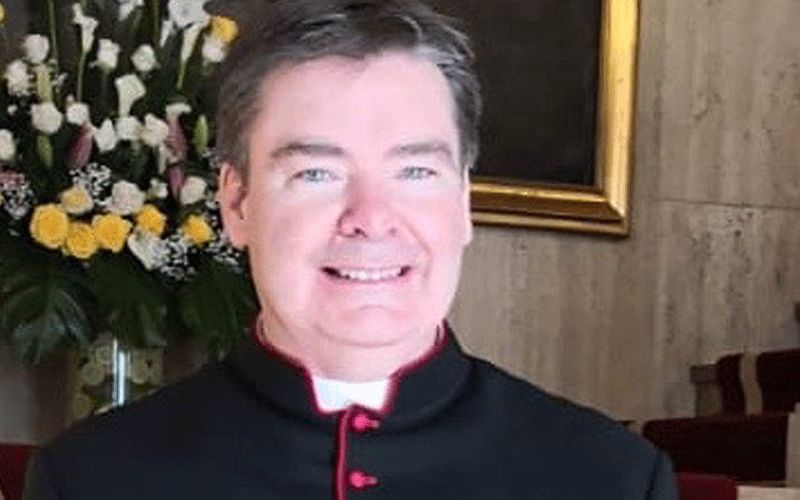The Bishop of Cyclone, Ireland, William Crean congratulated Msgr. Crotty saying, “I welcome the appointment of Monsignor Michael F. Crotty of the Diocese of Cloyne to the position as Papal Nuncio of Burkina Faso. This is a great personal honour for Msgr. Michael as it is for his family and the Diocese of Cloyne. His experience in the diplomatic service of the Holy See means that he brings many gifts to bear on his new mission in Burkina Faso.”
“We pray God’s blessing on his work in the service of the Holy See and the Church universal,” the Bishop added.
Msgr. Crotty joined the Holy See Diplomatic Service in July 2001. Since then, he has served in the Apostolic Nunciatures of Kenya, Canada, Iraq and Jordan, and in the Section for Relations with States of the Secretariat of State at the Vatican.
In 2005, Pope Emeritus Benedict XVI appointed Msgr. Crotty as his Chaplain and granted him the Prelate of Honour of His Holiness in 2014.
The Irish Prelate holds a licentiate in Canon Law and a doctorate in ecclesistical history, both from Gregorian Pontifical University in Rome.
He speaks various languages, including his native Irish, English, French, German, Italian and Spanish.
Msgr. Crotty will be representing the Holy Father in Burkina Faso, a country in the Sahel region, which the UN has warned could become “another Syria'' due to protracted conflict by al-Qaeda and the Islamic State-linked insurgents known as Ansaroul Islam and the Support Group to Islam and Muslims (JNIM).
Statistics by ACAPS, a Norwegian non-profit, non-governmental project that provides international, independent humanitarian analysis, indicate that the conflict in Burkina Faso has affected a total of 6.2 million people with an estimated 949,000 of them in conflict-affected areas requiring humanitarian aid.
Speaking on the sidelines of the Pan-African Congress on Divine Mercy last November, Burkinabe Philippe Cardinal Ouédraogo told ACI Africa that the situation in the country is “really critical,” with a looming humanitarian crisis occasioned by the inability of the country’s citizens to engage in farming activities.
The Saturday, February 1 overnight killing of an estimated 20 civilians in Lamdamol village in Seno province, north of the capital Ouagadougou by “unidentified heavily armed men on motorbikes” seems to demonstrate the state of insecurity in the West African nation.








